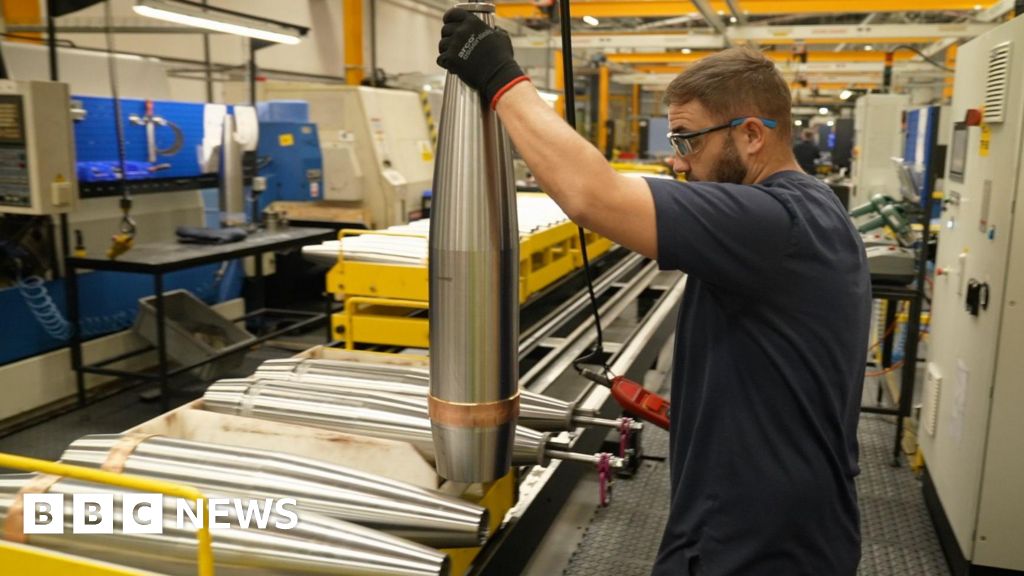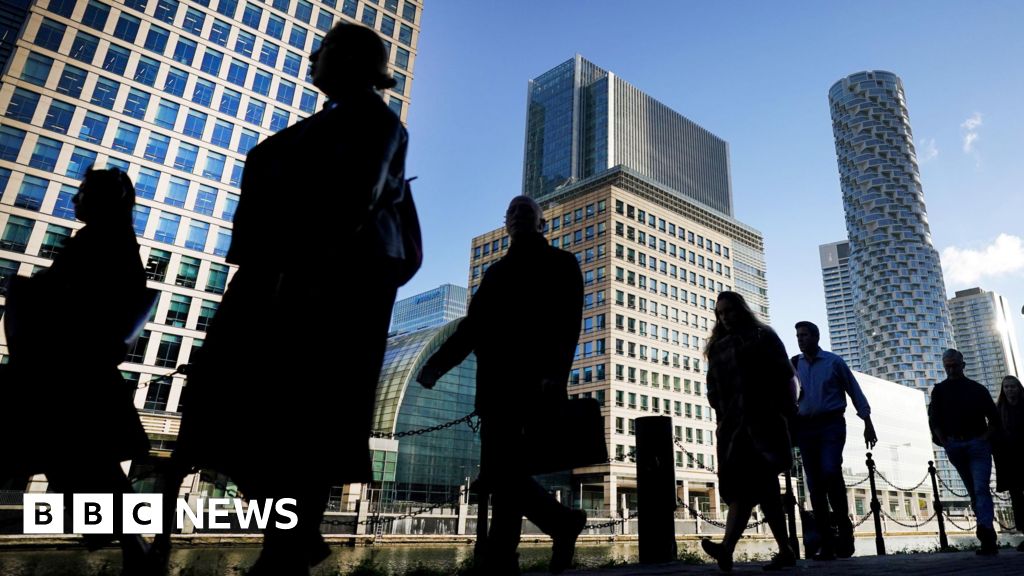ARTICLE AD BOX
By Joseph Lee
BBC News
image source, PA Media
image captionCars lined up for fuel in Stanwell, Surrey, but in many other places forecourts have shut after pumps ran dryPeople buying fuel when they do not need it are the cause of queues at petrol stations and empty pumps, the environment secretary has said.
George Eustice said there was "plenty of petrol" and urged people to buy it in the way they usually do.
He said the situation would "calm down" and the lack of HGV drivers was not a "huge problem" for petrol stations.
There were no plans at the moment to bring in the Army to drive tankers, he said.
The Petrol Retailers Association, which represents nearly 5,500 of the UK's 8,000 filling stations, warned on Sunday that up to two-thirds of outlets were out of fuel, with the rest of them "partly dry and running out soon".
But Mr Eustice said the UK's fuel supply was at normal levels and the fears of disruption which had led to panic buying over recent days were unfounded.
"The only reason we don't have petrol in forecourts is because people are buying petrol when they don't need it," he said.
He said the lack of HGV drivers would have been "entirely manageable" if it were not for the reaction to media coverage about a limited number of forecourt closures.
"Things will calm down. Those who are anxious - many of them will have filled up their cars with petrol now and things will then return to normal."
image source, Reuters
image captionQueues began forming again outside this London petrol station on Monday morningMr Eustice said there were always civil contingency plans involving the Army but it was not thought necessary to call them in at the moment.
Downing Street denied that the government was blaming the public, saying: "We completely understand people's anxiety. That's why we're doing everything possible to reassure people that stocks are secure."
Ministers hope that the fuel supply issues will die down once people's buying patterns revert to normal, BBC political correspondent Nick Eardley said.
But he said if that does not happen, plans to deploy the Army to drive tankers are still being considered and discussed by officials.
Brian Madderson, chairman of the Petrol Retailers Association, said the industry had problems with a shortage of HGV drivers but it only became a "critical situation" when a submission by BP to the cabinet was leaked, sparking widespread coverage and panic buying.
"One of our members yesterday received a tanker at midday and by late afternoon the entire tanker had disappeared into people's cars," he told BBC Radio 4's Today programme.
image source, PA Media
image captionDelivery firms said fuel supplies were still getting through to forecourtsMr Madderson said that customers themselves could solve the problem of pumps running dry.
"If they start buying in their normal quantities, £20 worth, 20 litres to fill up every week, we could see by the end of this week some return to normality - it won't be perfect, but some return," he said.
But he criticised the DVLA for the "ridiculous" numbers of HGV driver applications waiting to be processed.
The DVLA said there were more than 54,000 pending applications for licences, although some of those may be renewals and drivers can continue to work while they are dealt with.
Meanwhile, the lack of fuel in some forecourts has led to a call from the British Medical Association for healthcare staff and essential workers to be given priority access.
BMA chairman Dr Chaand Nagpaul said: "As pumps run dry there is a real risk that NHS staff won't be able to do their jobs and provide vital services and care to people who urgently need it."
The shortage of lorry drivers has caused problems for a range of industries in recent months, from supermarkets to fast food chains.
More on the lorry driver shortage
The government said on Sunday it would temporarily exempt fuel companies from competition law, as part of "long-standing" contingency plans to maintain supplies, allowing them to target supplies at areas most in need.
Business Secretary Kwasi Kwarteng said allowing the industry to share information would mean companies could work together more effectively to minimise disruption.
Ministers previously relaxed competition law in March 2020, to help supermarkets work together to maintain food supplies.
On Saturday, the government also announced it would offer temporary visas, lasting until Christmas Eve, to 5,000 foreign fuel tanker and food lorry drivers and 5,500 poultry workers in a bid to limit disruption in the build up to Christmas.
Other measures include sending nearly one million letters to drivers who hold an HGV licence - to encourage them back into the industry - and plans to train 4,000 people to become HGV drivers.
Elizabeth de Jong, director of policy for Logistics UK, told Today that it would be "days, possibly a couple of weeks" before the visa applications were open.
She said the industry had wanted more visas to be available and for a longer time, but she said the key issue now was to make them attractive to drivers, which was likely to mean offering good wages.
The UK had lost 72,000 drivers between the second quarter of 2019 and the same period in 2021, Ms de Jong said - partly due to people returning to the EU after Brexit.
At the same time, she said the pandemic had disrupted testing for HGV licences, making it harder to replace the lost drivers.
But Mr Eustice denied that Brexit had been a major factor in the driver shortage.
"None of this is because we have left the European Union," he said. "The biggest factor has been Covid."
How have you been affected by the fuel crisis? Share your experiences by emailing haveyoursay@bbc.co.uk.
Please include a contact number if you are willing to speak to a BBC journalist. You can also get in touch in the following ways:
If you are reading this page and can't see the form you will need to visit the mobile version of the BBC website to submit your question or comment or you can email us at HaveYourSay@bbc.co.uk. Please include your name, age and location with any submission.

 3 years ago
127
3 years ago
127








 English (US) ·
English (US) ·